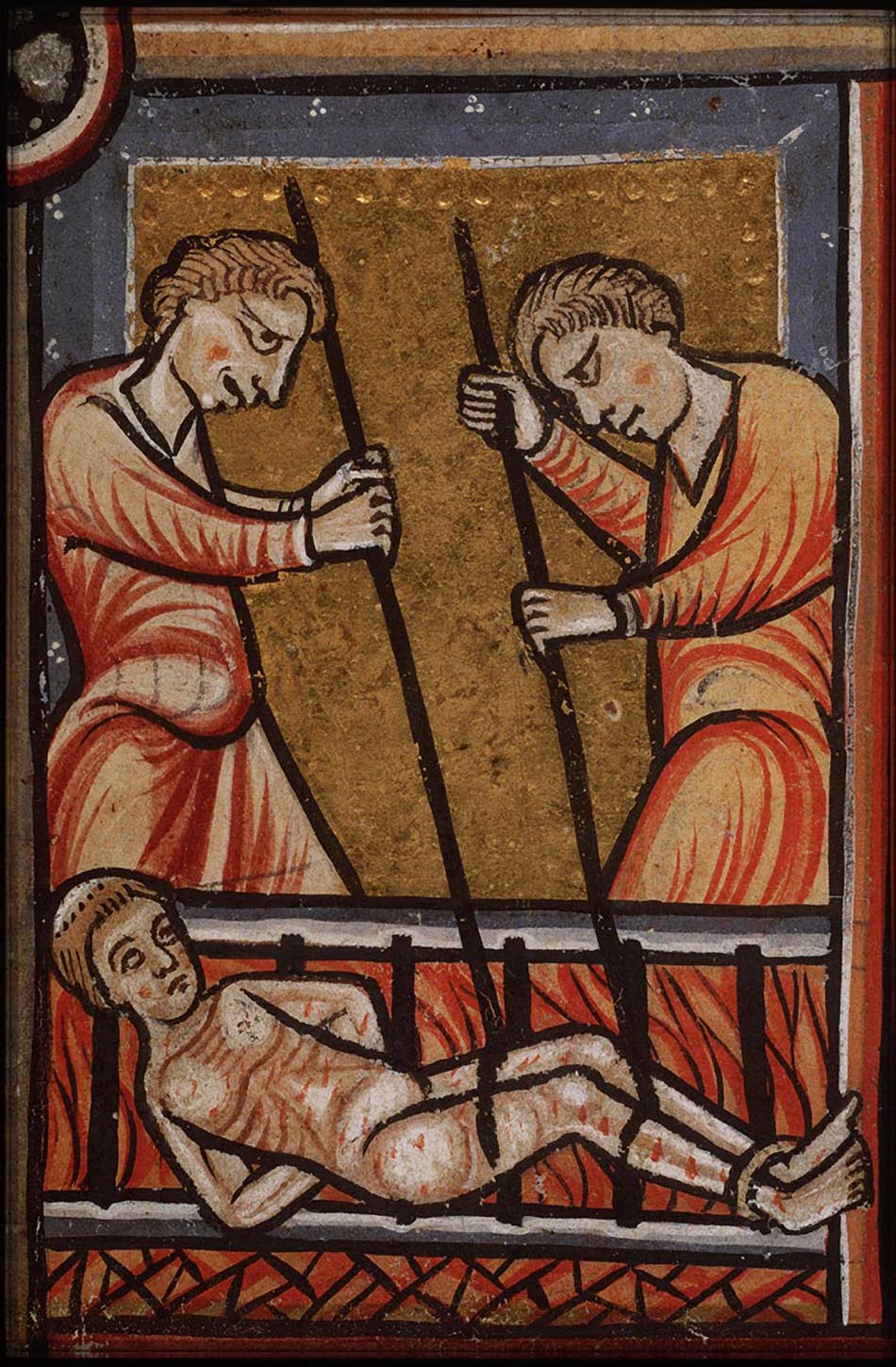
Medieval illumination of St. Lawrence being roasted to death.
As archdeacon of Rome, St Lawrence was responsible for the material goods of the Church and the distribution of alms to the poor. During the persecution of Christians in AD 258, he was arrested and told that the financial resources of the Roman Church–which the judge suspected was quite considerable–would be confiscated but he would be spared from execution if he would help gather the Church’s resources for the imperial authorities. Lawrence said that he would need three days to gather all the wealth of the Church and bring it to the court; he was released, with the understanding that he would came back to the court in three days with the wealth of Roman church.
Three days later, Lawrence came back to the court at the head of a large crowd of the old, the ill, the crippled, the orphaned, and the destitute. The judge asked where the Church’s treasure was. Lawrence pointed to the people behind him and answered, “These are the treasures of the Roman Church.” He went on to say, “Behold in these poor persons the treasures which I promised to show you. In addition to these, I will add pearls and precious stones, those widows and consecrated virgins, which are the Church’s crown.” The judge was so angry that he had a great gridiron prepared with hot coals beneath it, and had Lawrence placed on it, hence St Lawrence’s association with the gridiron. After the martyr had suffered pain for a long time, the legend concludes, he cheerfully declared: “I’m well done on this side. Turn me over!”
In many places, the feast of St. Lawrence–August 10–is the end of the summer harvest and the beginning of sowing the winter crops (such as rye). Because of his quip on the gridiron, Lawrence is the patron of cooks, chefs, and comedians. In some parts of eastern Europe, Lawrence the archdeacon was also a patron of horses because he was confused with Laurus the saint associated with horse doctors.
